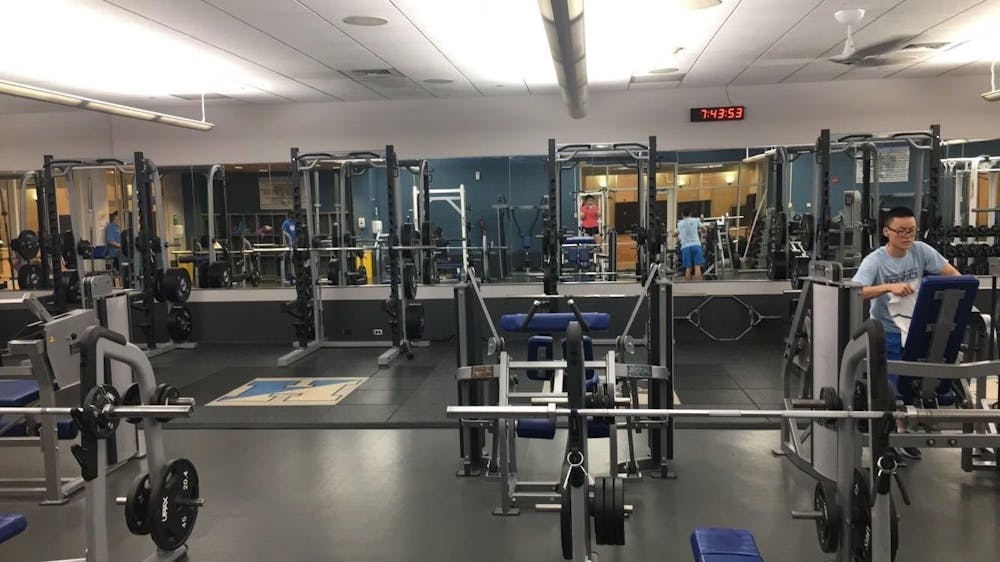Finals season drives many students to change their daily routines. Sleep schedules are adjusted, time set aside to socialize decreases and exercise routines are minimized or eliminated altogether. In general, these activities are not prioritized by students during this demanding time. However, it has been proven that exercise has benefits for both mental health and academic performance.
According to a 2012 article published in the Archives of Pediatrics & Adolescent Medicine written by members of an expert panel headed by Dr. Amika Singh, there are cognitive benefits to maintaining an active lifestyle.
“In addition to the positive physical and mental health impact of physical activity, there is a strong belief that regular participation in physical activity is linked to the enhancement of brain function and cognition, thereby positively influencing academic performance,” the authors wrote.
The article cites several possible biological reasons for the aforementioned enhancement of brain function and cognition. These include enhanced blood and oxygen flow to the brain and an increase in the levels of norepinephrine and endorphins, which contribute to improved mood and increased growth factors in the brain, which facilitates the creation of new nerve cells and encourage synaptic plasticity.
Senior Molecular and Cellular Biology major Sean Bunachita exercises every day. Usually he plays basketball for a few hours as a fun way to do cardio, and then lifts weights or does core workouts. Bunachita noted the connection between exercise and brain function that he sees in his own life.
“Exercising helps with my memory consolidation as I get better sleep on days that I work out, and sleep is linked to memory,” he wrote in an email to The News-Letter.
The results of a 2013 systematic review published by physicians at Dalhousie University, which evaluated eight randomized control trials with physical activity as an intervention, also established a strong link between exercise and improved cognition, which led to better academic performance.
Additionally, exercise can have a positive impact on mental health. According to a 2006 article published in the Physicians Postgraduate Press, aerobic exercises, which are often referred to as cardio and include running, swimming, cycling and dancing, have been proven to reduce anxiety and depression in meta-analysis studies. The article explains that exercising can improve one’s mental health by improving self-esteem and cognitive function, and can counter symptoms like social withdrawal.
Bunachita expressed his belief that exercise benefits his mental health and helps him cope with school.
“If I’m feeling overworked, I usually work out as a method of relieving stress and clearing my mind up,” he wrote.
Freshman Medicine, Science and the Humanities major Chime Nwogu echoed that working out benefits his state of mind and academic performance. His thoughts presented themes similar to those presented in “Exercise for Mental Health.”
“Exercising is something that makes me feel accomplished whenever I finish it. Usually, on the days I do not work out, I am a bit lazier because I don’t feel the need to do anything. However, on the days I do work out, I am more motivated to complete my work and I am able to manage my time a lot better,” he wrote in an email to The News-Letter.
Bill Harrington, senior associate athletic director and director of recreation and facilities at Hopkins, shared his thoughts on the connection between exercise, improved mental health and better academic performance.
“While regular exercise is important for many reasons, doing so during exams can help alleviate stress. It has long been known that exercise can cause the brain to produce serotonin and dopamine, which can help you to relax,” he wrote in an email to The News-Letter.
Harrington also encourages students to exercise in order to reap the benefits that doing so has on brain function.
“A number of studies have found that physical activity promotes the creation of new brain cells. Moving around increases blood flow to the brain which enhances brain function,” he wrote.
Overall, evidence suggests that exercise can positively impact both your mental health and academic performance. To students interested in exercising, especially during finals season, Harrington offered some advice.
“The recreation center offers many opportunities for exercise, whether structured or informal. The Rec Center also offers personal training services and swim lessons at a very reasonable cost. So, even if you have never had an exercise regimen, it is never too late, and access to excellent facilities will never be easier than those on campus,” Harrington wrote.





